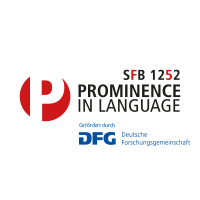Cooperations
The Collaborative Research Center 1252 "Prominence in Language" boasts a broad national and international research network. On this page, you will find an overview of our current Mercator Fellows, Senior and Junior Fellows, as well as our collaborations with junior researchers and institutional partners at the University of Cologne and beyond. If you, too, are interested in co-operating with our group of interdisciplinary linguists, please contact the Principal Investigators in question or our coordination team.
